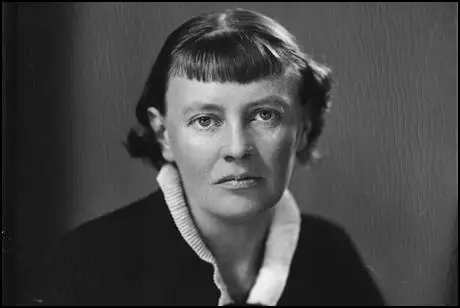On this day on 30th September
On this day in 1399 King Richard II of England's abdication was read out in the House of Commons by the Archbishop of Canterbury. It was argued that by his actions between 1397 and 1399 Richard had broken his oath and thus broken the legal bond between himself and his people. Article 16 claimed that the king did not "uphold or dispense the rightful laws and customs of the realm, but preferred to act according to his own arbitrary will and do whatever he wished". Henry of Bolingbrok was crowned as King Henry IV on 13 October, 1399. Richard remained in the Tower until he was taken to Pontefract Castle in December. It has been suggested that Henry initially intended for Richard to live. However, when he heard from Edward of Norwich, 1st Earl of Rutland, that there was a plot organized by John Montagu, 3rd Earl of Salisbury, John Holland, 1st Earl of Huntingdon, Thomas Holland, 3rd Earl of Kent and Thomas le Despenser, 1st Earl of Gloucester, to overthrow Henry and put Richard back on the throne, he arranged for him to be murdered. This took place in February, 1400.
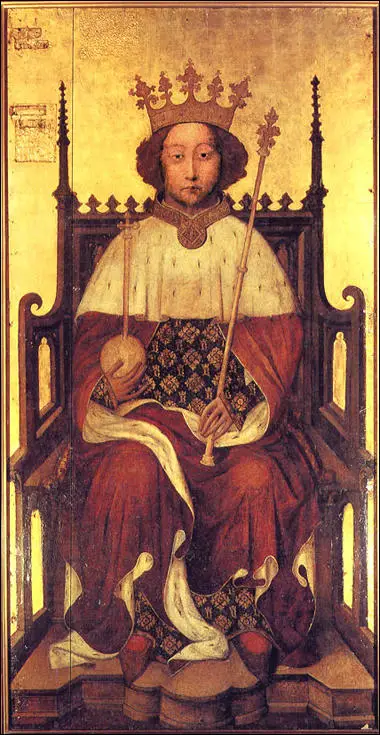
Richard II by unknown artist (c. 1395)
On this day in 1555 the Bishop of Oxford Nicholas Ridley and the Bishop of Worcester Hugh Latimer, were both sentenced as heretics. Ridley and Latimer were sentenced to be burnt at the stake for heresy on 16th October, 1555. John Foxe recalled that Ridley's brother gave him some gunpowder to hang around his neck. Latimer shouted to Ridley: "Be of good comfort Master Ridley, and play the man: we shall this day light such a candle by God's grace in England, as I trust shall never be put out". Foxe claimed that after Latimer "stroked his face with his hands, and as it were bathed them a little in the fire, he soon died with very little pain." Ridley took some time to die: "Ridley, by reason of the evil making of the fire unto him... burned clean all his nether parts before it touched the upper... Yet in all this torment he forgot not to call upon God... Let the fire come to me, I cannot burn. In which pains he laboured, till one of the standers by with his bill, pulled the faggots above, and when he saw the fire flame up, he wrested himself into that side. And when the flame touched the gunpowder, he was seen to stir no more."
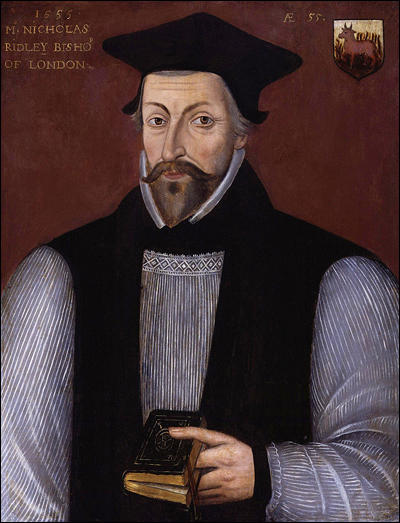
On this day in 1723 William Hutton, the son of a wool-comber, was born in Derby. By 1763 he was the most the important bookseller in Birmingham. Hutton also published books. This included his own History of Birmingham (1782) and A Narrative of the Riots in Birmingham (1791).
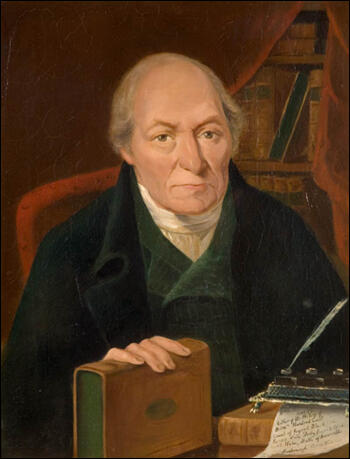
On this day in 1855 Ellen (Nellie) Charleston, the daughter of John Charleston, was born at Saint Agnes, Cornwall. She was the seventh of thirteen children. She moved to Australia and on 4th April 1885, she married Charles Martel, a widower from Guernsey. He was a photographer but later became a property developer in Sydney.
In 1891 Nellie Martel joined the Womanhood Suffrage League. In 1894 she was elected to its council and organizing committee. Martel was a talented speaker and soon become one of the best known advocates of women's suffrage in Australia. In September 1901 Martel became the founder and president of Women's Progressive Association of New South Wales. In June 1903 she began making speeches as a member of the Women's Social and Political League. Later that year she was elected president of the Women's Liberal and Reform Association.
In 1904 Nellie and Charles Martel moved to England. The following year she joined the Women's Social and Political Union (WSPU), an organisation established by Emmeline Pankhurst and her three daughters, Christabel Pankhurst, Sylvia Pankhurst and Adela Pankhurst. The main objective was to gain, not universal suffrage, the vote for all women and men over a certain age, but votes for women, “on the same basis as men.” This meant winning the vote not for all women but for only the small stratum of women who could meet the property qualification. As one critic pointed out, it was "not votes for women", but “votes for ladies.”
In 1906 Martel became an organiser of WSPU. The following year Martel published a pamphlet, "The Women's Vote in Australia". In January 1908 she went on a speaking tour of Devon with Emmeline Pankhurst. In her autobiography, My Own Story (1914), Pankhurst recorded that after one meeting: "We were warned that our safety demanded an immediate flight from the town. I laughingly assured our friends that I was never afraid to trust myself in a crowd, and we walked on. Suddenly we were confronted by a crowd of young men and boys, clay-cutters from the pits on the edge of town... A yell went up from the crowd, and we were deluged with a shower of clay and rotten eggs."
Martel began to question the leadership of Emmeline Pankhurst and Christabel Pankhurst. She objected to the way that the Pankhursts were making decisions without consulting members. They also felt that a small group of wealthy women like Emmeline Pethick-Lawrence, Clare Mordan and Mary Blathwayt were having too much influence over the organisation. In 1908 Nellie Martel left the WSPU.
Nellie Martel died on 11th August 1940.
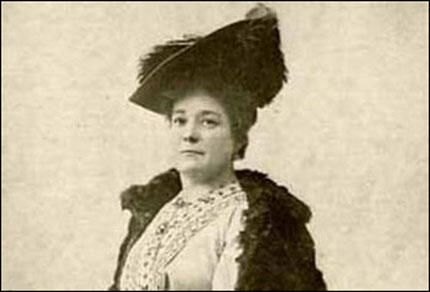
On this day in 1862 Prussia Minister President Otto von Bismarck's delivers his "Blood & Iron" speech. He concluded his speech with the following statement: "The position of Prussia in Germany will not be determined by its liberalism but by its power. Prussia must concentrate its strength and hold it for the favorable moment, which has already come and gone several times. Since the treaties of Vienna, our frontiers have been ill-designed for a healthy body politic. Not through speeches and majority decisions will the great questions of the day be decided - that was the great mistake of 1848 and 1849 - but by iron and blood (Eisen und Blut)."
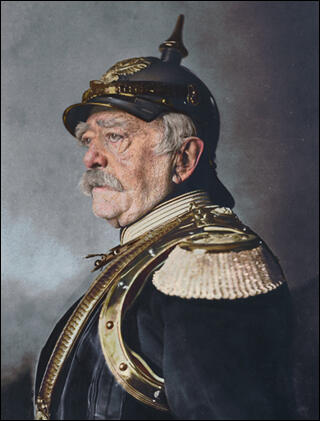
On this day in 1883 Bernhard Rust was born in Germany. When Adolf Hitler gained power in 1933 he appointed Rust as Minister of Science, Art, and Education for Prussia. In a speech he made on 6th November, 1933, Adolf Hitler, announced what he intended to do with the education system: "When an opponent declares I will not come over to your side. I calmly say, Your child belongs to us already. What are you? You will pass on. Your descendants, however, now stand in the new camp. In a short time they will know nothing else but this new community." In 1934 he was promoted to the post of Education Minister for the Reich. Rust's task was to change the education system so that resistance to fascist ideas were kept to a minimum. Teachers who were known to be critical of the Nazi Party were dismissed and the rest were sent away to be trained in National Socialist principles. As a further precaution schools could only use textbooks that have been approved by the party. On one occasion he remarked that "the whole function of education is to create Nazis."
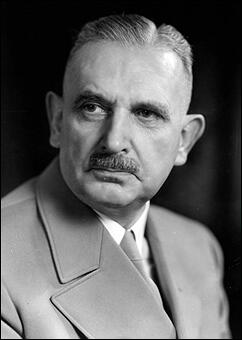
On this day in 1938, Neville Chamberlain, Adolf Hitler, Edouard Daladier and Benito Mussolini signed the Munich Agreement. Frank McDonough, the author of Neville Chamberlain, Appeasement and the British Road to War (1998) argued: "The Munich settlement, signed in the early hours of 30 September, resembled pre-1914 European diplomacy, with four major powers forcing a small nation, without the power to resist, to concede territory to a major power. The agreement deprived Czechoslovakia of its heavily fortified border defences, its rail communications were cut and a great deal of economic power was lost. The fate of the remainder of Czechoslovakia now lay at the discretion of the Nazi regime." Chamberlain and Daladier argued amongst themselves about who would tell the Czech government about the agreement. While they were doing this, the German Minister in Prague, beat them to it. He roused the Czech foreign minister, Kamil Krofta, from his bed at 5 a.m., and peremptorily presented him with a copy of the agreement just a few hours after it had been signed. The Czech government now realised that if they resisted Hitler's demands, they would have to fight the war on its own. At 12.30 p.m. Krofta made a statement: "The Government of the Czechoslovak Republic, in announcing his acceptance, declares also before the whole world its protest against the decisions which were taken unilaterally and without our participation."
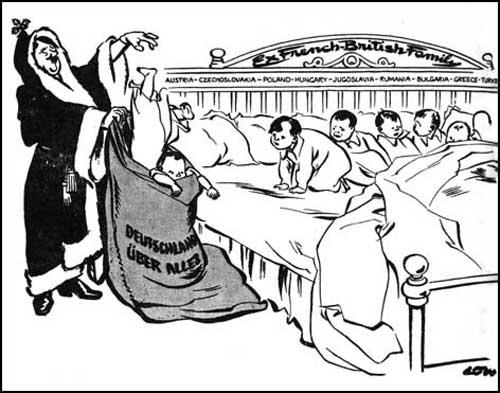
On this day in 1942 Air Vice Marshal John Portal, head of Bomber Command, explained how Nazi Germany would be beaten. "(A) was to build up the resources necessary to get a decision by invasion before German industry and economic power had been broken; (B) was to shatter German resistance by air and then put in the Army; (C) was a compromise under which we tried to build up simultaneously strong land and air forces on a scale unrelated to any particular task, without any clear intention of attaining a definite object by a definite time."
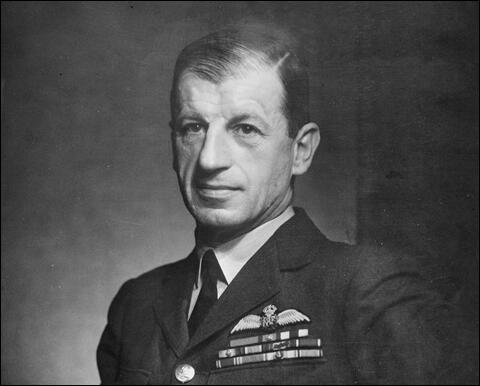
On this day in 1946, Nazi leaders are found guilty of war crimes and sentenced to death or prison at the Nuremberg war trials. Wilhelm Frick, Hans Frank, Ernst Kaltenbrunner, Walther Funk, Fritz Saukel, Alfred Rosenberg, Julius Streicher, Alfred Jodl, Wilhelm Keitel, Arthur Seyss-Inquart, Karl Brandt, Viktor Brack and Joachim von Ribbentrop were found guilty and executed on 16th October, 1946. Rudolf Hess, Erich Raeder, were sentenced to life imprisonment and Albert Speer to 25 years. Karl Doenitz , Walther Funk, Franz von Papen, Alfried Krupp, Friedrich Flick and Constantin von Neurath were also found guilty and sentenced to long terms of imprisonment.
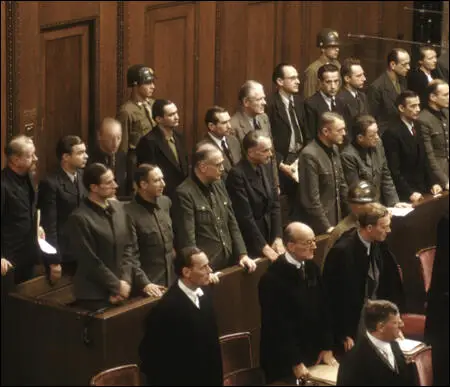
On this day in 1949 the Berlin Airlift came to an end after 277,264 flights which carried 2,323,738 tons of supplies. This enabled the allies to provide enough food and fuel to the 2.5 million people living in West Berlin.
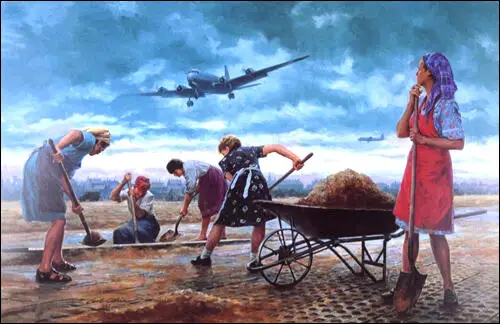
On this day in 1953 Earl Warren was appointed by President Dwight D. Eisenhower as Chief Justice of the US Supreme Court. Over the next few years Warren made it clear he supported the civil rights campaign and voted for the banning segregation in America's schools. He now became a target of right-wing groups and Robert Welch, the leader of the John Birch Society, described Warren as being a member of a Communist conspiracy. Other white supremacists such as George Wallace and James Eastland joined in these attacks. At one rally in Los Angeles there were calls for Warren to be lynched.
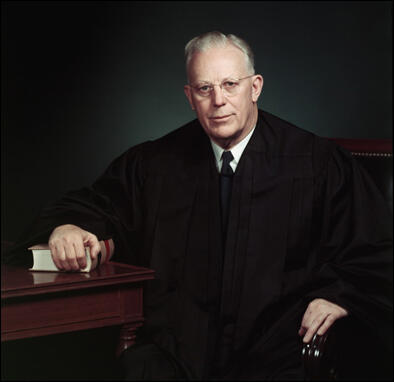
On this day in 1962 James Meredith registers for classes at University of Mississippi. Twice rejected in 1961, Meredith filed a complaint with the district court on 31st May 1961. Meredith's allegations that he been denied admission because of his colour was rejected by the district court. However, on appeal, the Fifth Judicial Circuit Court reversed this ruling. By a 2 to 1 decision the judges decided that Meredith had indeed been refused admission solely because of his race and that Mississippi was maintaining a policy of educational segregation. Meredith's admission to the University of Mississippi was opposed by state officials and students and the Attorney General, Robert Kennedy, decided to send federal marshals to protect Meredith from threats of being lynched. During riots that followed Kennedy's decision, 160 marshals were wounded (28 by gunfire) and two bystanders were killed. Despite this opposition, Meredith continued to study at the University of Mississippi and successfully graduated in 1964.
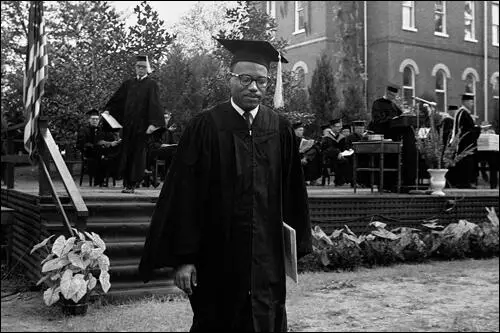
On this day in 1966 Nazi war criminal, Albert Speer, who falsely denied he knew about the Holocaust, was released from Spandau prison after serving 20 years. The historian, Ulf Schmidt, has pointed out: "Speer was personally involved in the Holocaust, that his ministry provided the building materials for an extension of Auschwitz, that he made a substantial fortune with Aryanized property, denounced uncooperative competitors, initiated the construction of concentration camps, and supported the draconian measures used against forced and slave labourers in some of Germany's most horrific underground production facilities. If only a part of this had been known during the International Military Tribunal in 1945, which preceded the trial against Karl Brandt and others, Speer would probably have been sentenced to death. The fact that most of it was unknown at the time gave Speer the possibility of creating his own carefully constructed, but also greatly biased, post-war narrative of himself and the regime, a convenient and plausible story, which scholars and journalists either took for granted or were unable to refute."
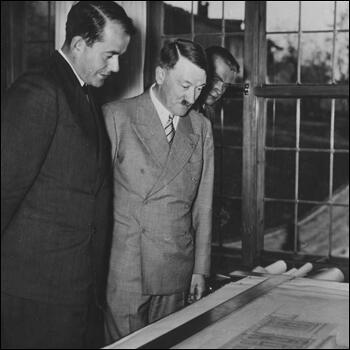
On this day in 1986 Margaret Storm Jameson died.
Margaret Storm Jameson was born in Whitby on 8th January 1891. Her father and grandfather were successful shipbuilders. She studied at University of Leeds and was elected Secretary of the Women's Representative Council.
Jameson became a socialist at university and was a strong advocate of women having the vote. She also raised funds for the families of union members who took part in the strike that took place in the tailoring industry in Leeds in 1911.
After obtaining a first-class degree in English at the University of Leeds she moved to London in September 1912 and found employment at the Working Women's College in Earls Court. She wrote later that: "I believe that there exists in the intellect of the working class a vigour and freshness that may well bring forth a new Renaissance. For generations crushed under the industrial slavery, I believe that it will move when it does move, with a mighty bound."
Jameson became active in politics and joined the National Union of Women Suffrage Societies (NUWSS). In 1913 she took part in the Women's Pilgrimage to show the House of Commons how many women wanted the vote. Members of the NUWSS set off in the middle of June, and during the next six weeks held a series of meetings all over Britain. An estimated 50,000 women reached Hyde Park in London on 26th July. According to her autobiography, she bit a policeman, during the demonstration.
On 15th January 1913, Jameson married Charles Douglas Clarke, a fellow student at University of Leeds. They lived in a small flat in Shepherd's Bush. According to the author of Margaret Storm Jameson: A Life (2009): "They were very poor, she lunched regularly on plums, and they squabbled bitterly. She tried to commit suicide with an overdose of phenacetin, and he was deeply unsympathetic. She fell ill at the end of the year and went home to her parents in Whitby, while he moved in with his Quaker parents in North London."
Jameson had two articles published in New Age. The first was an attack on the work of George Bernard Shaw. She criticised his plays for their "poor characterisation" and for the "half-baked ideas" that had come from his membership of the Fabian Society. The second article dealt with the unfairness of marriage laws. Jameson also wrote an article for The Egoist that explored the political ideas of Emma Goldman.
Soon after the outbreak of the First World War, Storm Jameson's father joined the Royal Navy and became captain of the Saxon Prince. In the spring of 1916 the ship was sunk off the Irish coast and Jameson was taken prisoner and sent to a military camp at Hamburg.
Her brother, Harold Jameson, although only seventeen, joined the Royal Flying Corps. By 1916 he was a 2nd Lieutenant and had been given the DCM: "for conspicuous coolness and gallantry on several occasions in connection with wireless work under fire." Later that year he won the Military Cross for attacking a German kite balloon under heavy fire. He was killed in January 1917 after being shot down while over No Man's Land.
As Martin Ceadel, the author of Pacifism in Britain 1914-1945 (1980) has pointed out: "Her sense of outrage at the Great War in which so many of her contemporaries, including her brother, had been killed suddenly erupted into overt pacifism... Brooding upon the depressing consequences of the war, she felt an acute sense of guilt at having supported it, and turned her book into an outspoken anti-war polemic.... By the end she had gone so far as to declare herself a pacifist." After the war she joined the Women's International League. Other members included Emmeline Pethick-Lawrence, Chrystal Macmillan, Sylvia Pankhurst, Charlotte Despard, Helen Crawfurd, Mary Barbour, Agnes Dollan, Ethel Snowden, Ellen Wilkinson, Selina Cooper, Margery Corbett-Ashby, Helena Swanwick and Olive Schreiner.
Her first novel, The Pot Boils, was published in 1919. Her marriage to Charles Douglas Clarke came to an end and in January 1924 she met Guy Chapman. He later commented: "She was wearing a heavy coat over a faded pink knitted dress, and a hat which did not suit her, and she smiled at me. She was rather lovely, with long cool grubby fingers, and she held herself badly: she made me think of a well-bred foal, unbroken and enchantingly awkward. Something she said at that first meeting, I forget what, made me laugh with pure pleasure."
